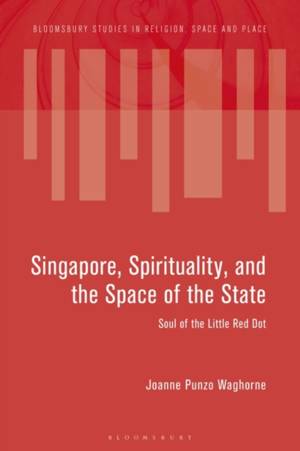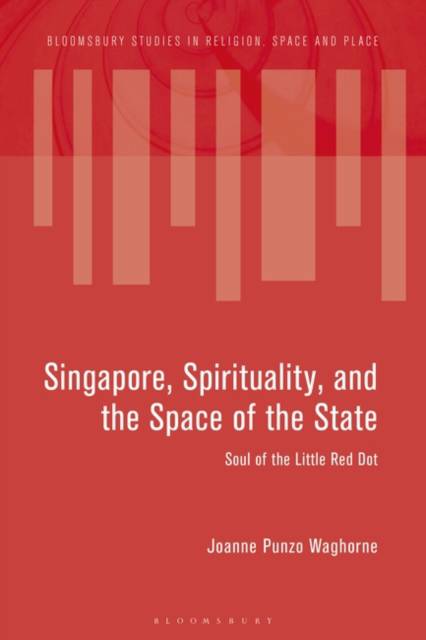
Bedankt voor het vertrouwen het afgelopen jaar! Om jou te bedanken bieden we GRATIS verzending (in België) aan op alles gedurende de hele maand januari.
- Afhalen na 1 uur in een winkel met voorraad
- In januari gratis thuislevering in België
- Ruim aanbod met 7 miljoen producten
Bedankt voor het vertrouwen het afgelopen jaar! Om jou te bedanken bieden we GRATIS verzending (in België) aan op alles gedurende de hele maand januari.
- Afhalen na 1 uur in een winkel met voorraad
- In januari gratis thuislevering in België
- Ruim aanbod met 7 miljoen producten
Zoeken
Singapore, Spirituality, and the Space of the State
Soul of the Little Red Dot
Joanne Punzo Waghorne
€ 228,95
+ 457 punten
Omschrijving
This book examines spirituality in Singapore, showing how important the city state is for understanding contemporary global configurations of urban space, religion, and spirituality. Joanne Punzo Waghorne highlights how the formal religious spaces-temples, churches, and mosques-have been confined to allotted sites on the map of Singapore, whereas various "spiritual" organizations, particularly of Hindu origins and headed by a guru, still continue to operate as "societies" classified by the government with other "clubs."
These unconventional religiosities are not confined but ironically make their own places, meeting in ostensive secular venues: high-rise flats, malls, businesses, and community centers, thus existing in the overall space of religion, commerce, and the state. The book argues that State of Singapore also operates between the secular and the religious, constructing an overarching spatial regime that both accommodates and yet rivals the alternate spheres that spiritual movements construct under its umbrella.
Both spatial configurations challenge the presumed relationships between myth and reality, religion and commerce, the ethereal and the concrete, the sacred and the secular, on the levels of self, community, and polity. Singapore, now deemed a model for urban development in Asia, also offers an understanding of a new post-secularity and perhaps reveals where the urbanized world is headed.
These unconventional religiosities are not confined but ironically make their own places, meeting in ostensive secular venues: high-rise flats, malls, businesses, and community centers, thus existing in the overall space of religion, commerce, and the state. The book argues that State of Singapore also operates between the secular and the religious, constructing an overarching spatial regime that both accommodates and yet rivals the alternate spheres that spiritual movements construct under its umbrella.
Both spatial configurations challenge the presumed relationships between myth and reality, religion and commerce, the ethereal and the concrete, the sacred and the secular, on the levels of self, community, and polity. Singapore, now deemed a model for urban development in Asia, also offers an understanding of a new post-secularity and perhaps reveals where the urbanized world is headed.
Specificaties
Betrokkenen
- Auteur(s):
- Uitgeverij:
Inhoud
- Aantal bladzijden:
- 280
- Taal:
- Engels
- Reeks:
Eigenschappen
- Productcode (EAN):
- 9781350086555
- Verschijningsdatum:
- 19/03/2020
- Uitvoering:
- Hardcover
- Formaat:
- Genaaid
- Afmetingen:
- 156 mm x 234 mm
- Gewicht:
- 562 g

Alleen bij Standaard Boekhandel
+ 457 punten op je klantenkaart van Standaard Boekhandel
Beoordelingen
We publiceren alleen reviews die voldoen aan de voorwaarden voor reviews. Bekijk onze voorwaarden voor reviews.









